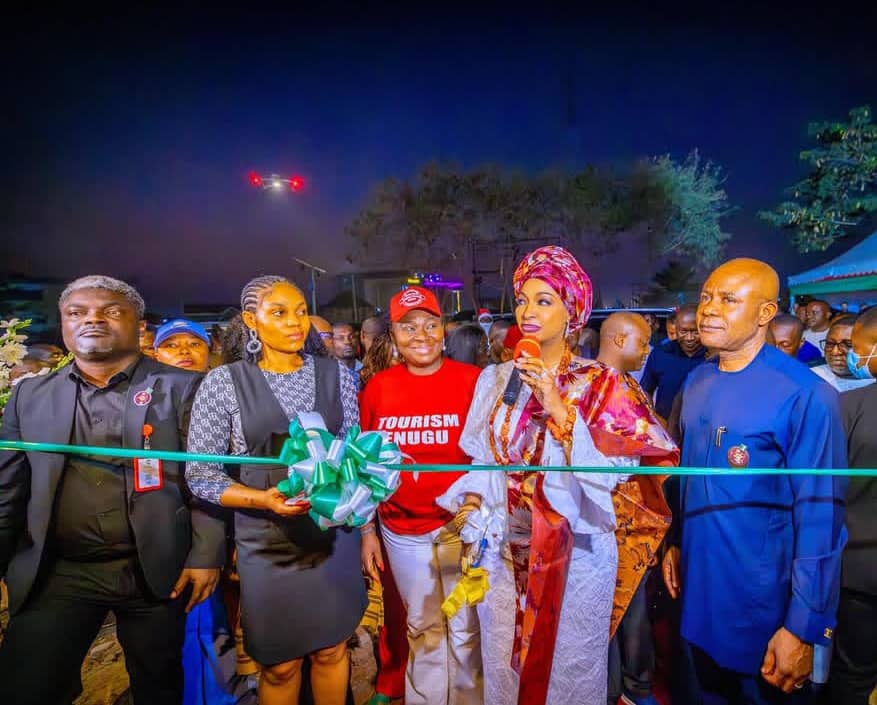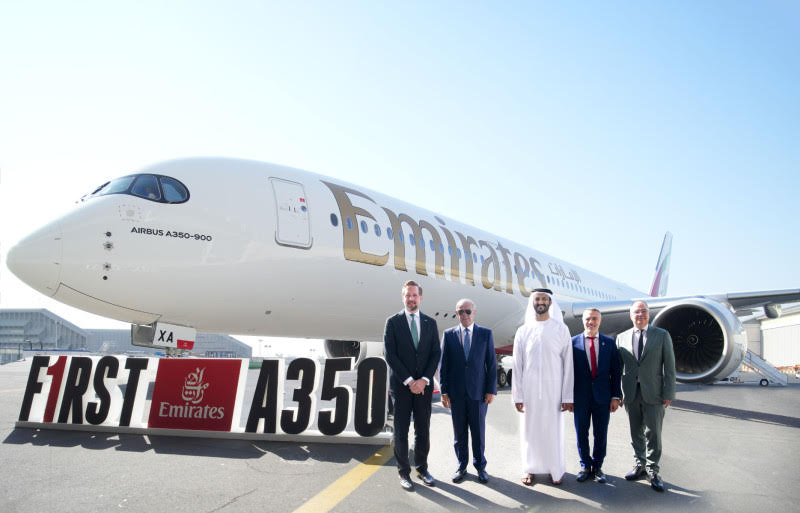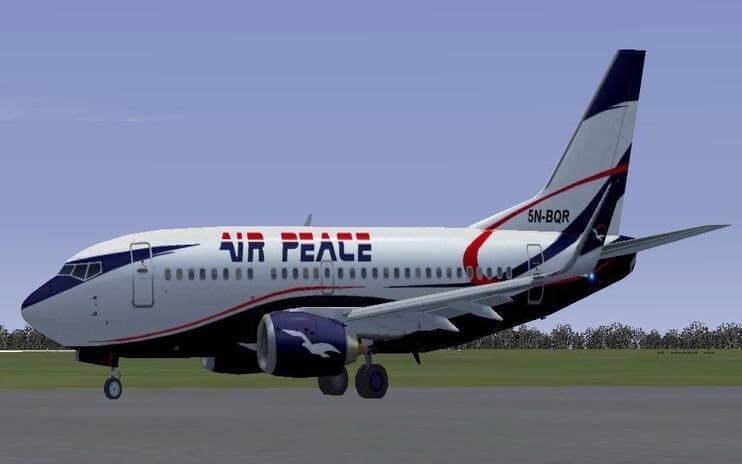Travel/Tourism
Sustaining Nigeria’s Transport Sector Using Technology

An efficient transportation sector facilitates exchanges that result in the improvements of lives and economies globally. Every day, transport stakeholders develop new ways that support the sustainability of this sector. This stems from the knowledge that the movement of humans, goods and services remains a fundamental part of a country’s economy, and extensively, global economic growth.
In the third-quarter economic performance report for 2021 released by the Nigeria Bureau of Statistics (NBS), the growth in the non-oil sector cannot be overlooked, with the transportation sector also making significant leaps in the quarter, making it one of the fastest-growing sectors in Nigeria in Q3 2021.
The modes of transportation that made these impressive contributions to the economy were rail transport and pipeline (59.93 per cent), air transport (33.31 per cent), road transport (21.11 per cent), and water transport (16.30 per cent). For a country with over 200 million people, the need for a robust means of transportation cannot be overemphasized.
And this guides the federal government’s decision to put initiatives in place to close the gap in the transportation sector through a multi-modal transport system. Although these initiatives are yet to be unveiled, the Lagos State Government has embarked on its own ambitious multi-modal transport system in a bid to upgrade the state to smart city status.
According to the state government, there is fund available to complete the various projects, including the creation of rail lines for intracity trips and other works that will put the proper infrastructure in place for an efficient transport system in the state. To further drive this conversation on the importance of building a sustainable transport system in the metropolis, the Lagos Transport Fest, held on December 13, 2021, drawing stakeholders from both the public and private sector to discuss the way forward in improving Nigeria’s transport system.
The event focused on every aspect of transportation including road, rail, logistics, and ports, noting the importance of a cross-sector partnership to develop the transport sector. In the outline of the event’s agenda, one element made a repeated appearance: technology.
This highlights the fact that technology can bring about changes in the operations of businesses within the rail, maritime, aviation, and road modes of transportation. Technology has continued to prove itself a force to reckon with, evident in the unprecedented changes it has produced across sectors, and the transport sector in Nigeria is not any different.
These perceived and observed changes have led to a steady rise in its utilization, as digitization of processes in various economic quarters has become not just widely accepted but even encouraged. Speaking along these lines was one of the event’s sponsors, Interswitch, Africa’s leading digital payment company, who noted the effect of innovation on the country’s transport sector would increase accessibility to safe payment methods and the attendant ease for commuters.
The need for digitization in the transportation business became notable during the heat of the pandemic, as innovators devised new ways to conduct their businesses without the need for physical contact between individuals. This was especially observed in the logistics sector which saw more companies adopting technological solutions while minimizing physical contact.
In developed countries, other solutions such as robotics, drones, the Internet of Things (IoT) and Artificial Intelligence (AI) swiftly became a replacement for humans to reduce human contact and by extension, the spread of the virus.
Transportation and the AfCFTA
It would almost be remiss if there was no mention of Intra-African trade through the Africa Continental Free Trade Agreement (AfCFTA), which is expected to facilitate stronger trading relations between countries on the African continent. With this in view, experts have highlighted the deficits in the transportation sector that could hinder Nigeria – Africa’s current leading economy – from accessing its full potential, relegating it behind other smaller African nations with better systems in place.
However, giving reassurances of the country’s readiness to participate in this monumental intra-continental trade, the Minister of Transportation, Rotimi Amaechi, said, at a 2-day conference, that the federal government had taken seriously the business of transportation.
He noted that “The transportation sector is the most critical in implementing trade facilitation, enhancing regional integration is key to every other AfCFTA protocol. Hence, the Nigerian government has embarked on huge transport infrastructure investment across the country to ensure efficiency in the transportation sector.”
He also highlighted the importance of digitization in the sector as one of the major elements that require a sturdy infrastructure for successful intra-continental trading. The minister noted that his ministry was dedicated to improving digital services in the transport system through the automation of services.
In the same vein, analysts are projecting a boost in free trade in Africa through digitization. With about 36 countries ratified onto the AfCFTA, it is estimated that over 1 billion consumers on the African continent, with a growing Gross Domestic Product (GDP) of $3.4 trillion will be integrated.
However, the ever-fluctuating, dollar-reliant exchange rate system on the continent remains a challenge to trade within the continent. To address this, the African Export-Import Bank (Afreximbank), in collaboration with the West African Monetary Institute (WAMI), developed the Pan-African Payment and Settlement System (PAPSS) to facilitate cross-border payment between traders in Africa, which would involve participating central banks.
Interswitch, through some of its brands, has continued to enhance cross border payments – Quickteller, a borderless digital payment solution service and Verve card, a payment card issued in 8 African countries with acceptance in over 22 countries on the continent. These services and products are aiding payment between African traders, removing transaction barriers.
To take full advantage of this untapped market, countries would need to develop better transport infrastructure and systems and fortify payment systems to lessen the stress that comes with it, which will help to properly connect markets across the continent and achieve the overarching goal of a prosperous continent.
Enormous opportunities abound in the transport sector, but to tap into these there is the need for a concerted effort from stakeholders in both the public and private sectors to ensure that consumers have seamless experiences while moving goods, services, people and payments across borders.
Travel/Tourism
Musawa, Governor Mba Commission Enugu Christmas Village

By Dipo Olowookere
The Enugu Christmas Village has been commissioned by the Minister of Arts, Tourism, Culture, and the Creative Economy, Ms Hanatu Musawa; and the Governor of Enugu State, Mr Peter Mba.
This development officially kicked off the holiday season in the state, giving residents and others from across Nigeria and outside the opportunity to relax in an atmosphere of love, positioning Enugu as a key destination for cultural and holiday tourism.
Facilitated by Omu Resort, a leading tourism promoter in Africa, the Enugu Christmas Village is set to become the heartbeat of holiday celebrations in the state.
The company has already organised a 25-day festival at the village designed to attract residents, visitors, and dignitaries from across the region.
With its vibrant atmosphere and festive attractions, the Enugu Christmas Village boasts an array of attractions such as a waterpark, roller skating, archery, amusement rides, and much more.
At its centre is a breathtaking display of 500,000 Christmas lights, illuminating the village in a magical glow that promises to captivate visitors of all ages.
The festival goes beyond the lights and rides, offering a rich tapestry of events that celebrate the state’s cultural heritage.
Highlights include Afrobeat Concert, Praise Night, Highlife Concert Street Carnival, Cultural Parade and a Grand Fireworks Show.
One of the most anticipated moments is the Santa Street Storm, where over 100 Santa Claus figures riding tricycles will parade through the streets, distributing gifts to orphanages and the less privileged, spreading joy and goodwill.
Running from December 7 to December 31, 2024, the Enugu Christmas Festival is more than just a celebration of the holiday season. It underscores the state’s cultural vibrancy and its potential as a leading tourist destination.
The festival offers a unique opportunity for families and friends to come together, celebrate, and unwind in a festive atmosphere. It is also expected to fosters unity and showcases the rich cultural heritage of Enugu State, while promoting arts, tourism, and community well-being.
Travel/Tourism
Emirates Unveils Airbus A350-900 in Dubai

By Aduragbemi Omiyale
One of the leading airline operators, Emirates Airline, has officially unveiled its first Airbus A350-900 at an exclusive event showcase in Dubai attended by aerospace partners, government officials and dignitaries, members of the media, as well as aviation enthusiasts.
The Emirates A350 features three spacious cabin classes, accommodating 312 passengers in 32 next-generation Business Class lie-flat seats, 21 Premium Economy seats and 259 generously pitched Economy Class seats.
The latest onboard products reflect the airline’s commitment to delivering a premium passenger experience while optimising operational efficiency. The Emirates A350 is the first new aircraft type to join Emirates’ fleet since 2008.
Apart from its newly delivered A350, Emirates operates two other aircraft types around the world to 140 destinations – the widebody Boeing 777 aircraft and the iconic ‘double decker’ Airbus A380 aircraft.
The A350’s introduction will enable Emirates to expand into new destinations globally, including mid-sized airports unsuited for larger aircraft. The Emirates A350 will be delivered in two versions – one for regional routes and one for ultra long-haul routes.
The Emirates A350 takes technology to another level. Customers can now adjust their electric window blinds at the touch of a button.
The aerBlade dual blind system will feature in Business and Premium Economy Class offering two shaded options, and the aerBlade single blind systems will make a debut in Economy Class, with all blinds showing the Emirates Ghaf tree motif when closed.
Business Class on the Emirates A350 will feature 32 luxurious leather ‘S Lounge seats’, inspired by the Mercedes S Class for an exceptional travel experience. The A350 aircraft will feature brand new additions of wireless charging on the side cocktail table in Business Class, and in-seat lighting controls with 5 streams of light. The 1-2-1 seat configuration in the A350 Business Class ensures a very private, exclusive experience.
Speaking at the event, the chairman of Emirates Airline, Mr Ahmed bin Saeed Al Maktoum, said, “Today is an exciting milestone for Emirates as we showcase our first A350 and usher in a new era for our fleet and network growth.
“This aircraft sets the stage for Emirates to spread its wings farther by offering added range, efficiency and flexibility to our network, enabling us to meet customer demand in new markets and unlock new opportunities in the cities that we serve.
“Onboard, our updated interiors and seating configurations will help us deliver a more elevated and comfortable experience to travellers across every cabin class.
“The 65 Emirates A350s joining our fleet in the coming years fit into the airline’s broader plans to support our visionary leadership’s Dubai’s D33 Strategy, which will transform the city into a pivotal hub in the global economy by expanding its connectivity and reach.”
Travel/Tourism
Air Peace Employees Undergo Training at Boeing Global Learning Institute

By Aduragbemi Omiyale
Some employees of Air Peace have upgraded their aviation safety skills at a training course organised by Boeing through the Boeing Global Learning Institute (BGLI) in collaboration with Cranfield University, United Kingdom as part of a shared commitment to shaping the future of aviation leadership.
Over the years, Air Peace has recognized that a deep, unwavering commitment to safety is key to its continued success.
The programme is aimed at building upon that vision, enabling executives to lead with confidence, manage risks effectively, and create high-performing teams that prioritize safety at every level.
In the five-day in-person training, all the executives and others in the various departments of Air Peace were taught advanced safety leadership skills and gained practical tools to implement the new knowledge.
The Head of Aerospace at Cranfield University, Prof Graham Braithwaite, said, “This collaboration ensured that the training directly addresses the challenges Air Peace faces, culminating in real-world capstone projects that would have a lasting impact.”
Reinforcing this position, the Lecturer for Organisational Resilience and Change at Cranfield School of Management, Fabian Steinmann, who was excited at the great progress Air Peace made over the years, said that they are happy to learn and share knowledge and find ways to strengthen the system, making it robust and flexible to adapt to the ever-changing environment.
“Safety is at the heart of everything we do at Cranfield so the privilege we have is that we travelled around the world, picked up the good practices, learned more about the culture and the operation in various countries so we’re here to facilitate that exchange with Nigeria and Air Peace to see how we share some of the good practices and lessons learned from all around the world and translate them into their operation.”
Also, the Senior Organisational Consultant and Programme Manager at Boeing Global Learning Institute, Harry Magui, said, “The Boeing company has long recognised the importance of supporting continuous learning of our aviation partners.
“To that end, the Boeing Global Learning Institute designs and delivers numerous learning programmes to both emerging and established leaders of our partners.
“These efforts aim to develop leadership, business, and technical skills so that our partners can improve their business processes, increase operational efficiency and enable leaders to strengthen their teams to ultimately grow their business.’
Alluding to the great work Air Peace has done in making safety a pre-condition rather than just a priority, Magui said, “We’re here to partner with our great partner, Air Peace who have been phenomenal in advancing the Aviation Industry in Nigeria, so we are here to support them to harness more opportunities in the future with the Advanced Leadership in Safety Excellence Training for all its top leadership within the organization.”
The Safety Manager at Air Peace, Captain Godfrey Ogbogu, said, “This class is quite essential and we’re lucky to have our resource persons impact knowledge on us. It is a well-structured training, especially for Air Peace because of where we are now and where we hope to go in the future.
“The whole essence of this class is to reinforce what we know before and be exposed to other avenues of learning. The aviation industry is ever-changing and dynamic, and Air Peace has to be abreast of such developments.”
-

 Feature/OPED5 years ago
Feature/OPED5 years agoDavos was Different this year
-
Travel/Tourism8 years ago
Lagos Seals Western Lodge Hotel In Ikorodu
-

 Showbiz2 years ago
Showbiz2 years agoEstranged Lover Releases Videos of Empress Njamah Bathing
-

 Banking6 years ago
Banking6 years agoSort Codes of GTBank Branches in Nigeria
-

 Economy2 years ago
Economy2 years agoSubsidy Removal: CNG at N130 Per Litre Cheaper Than Petrol—IPMAN
-

 Banking2 years ago
Banking2 years agoFirst Bank Announces Planned Downtime
-

 Sports2 years ago
Sports2 years agoHighest Paid Nigerian Footballer – How Much Do Nigerian Footballers Earn
-

 Technology4 years ago
Technology4 years agoHow To Link Your MTN, Airtel, Glo, 9mobile Lines to NIN














